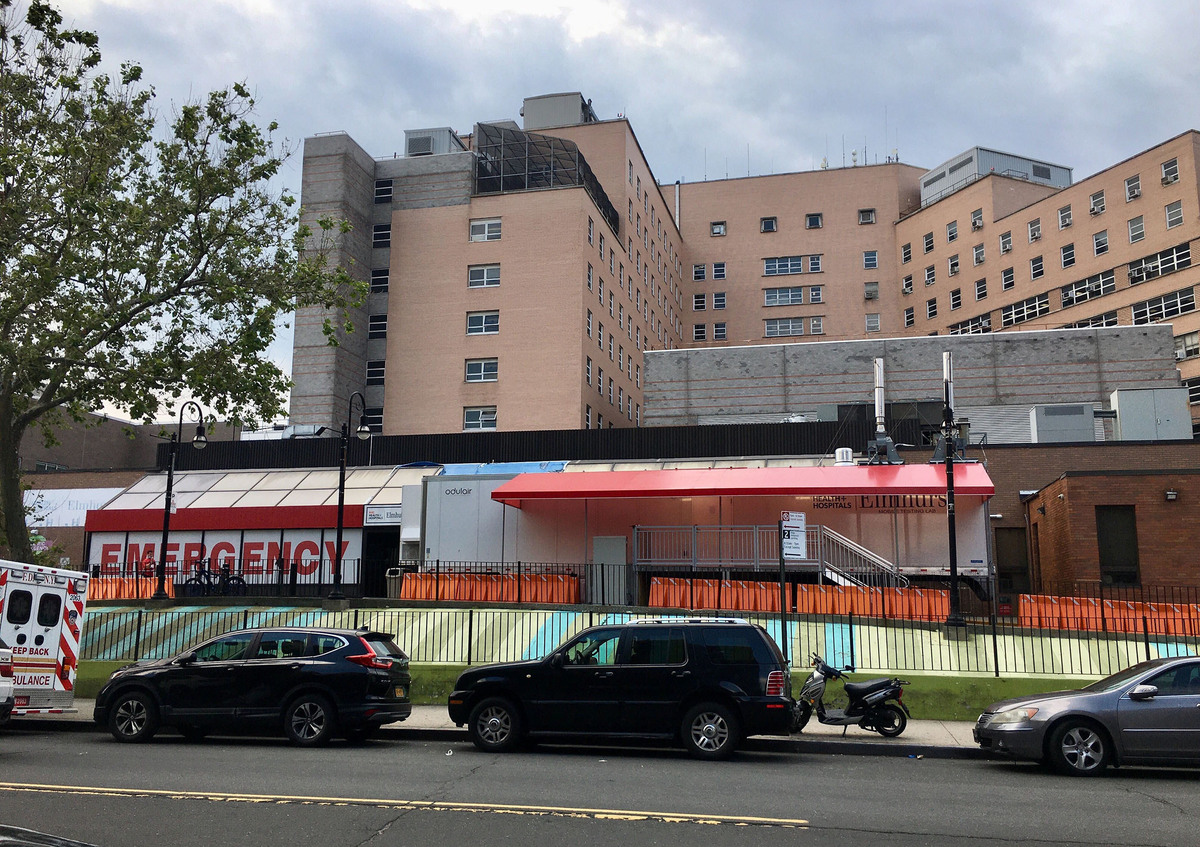[ad_1]

Outside the emergency room entrance at Elmhurst Hospital in Queens, once the epicenter of COVID-19 in New York City.
Brigid Bergin/WNYC
hide caption
toggle caption
Brigid Bergin/WNYC

Outside the emergency room entrance at Elmhurst Hospital in Queens, once the epicenter of COVID-19 in New York City.
Brigid Bergin/WNYC
A major primary election kicks off across New York City on Saturday as voters prepare to pick a new mayor for the first time in eight years.
Mayor Bill de Blasio is out at the end of the year because of term limits and as voters choose from a crowded field of would-be successors, the issue of crime and public safety has overtaken COVID-19 as the leading concern among voters — boosting moderates and serving as a stress test for the city’s progressive left.
So far, more than 33,000 city residents have died from COVID-19, more than any other major city in the United States. But as virus rates go down and vaccination rates go up, New York City voters increasingly say that crime and public safety are their biggest concerns, according to a recent poll.
Shootings are up 77% year to date, including a spate of recent high-profile incidents. Last weekend, a shooter aimed into a Queens home and killed a 10-year-old boy. A few weeks earlier a 4-year-old was wounded by stray bullets on a Saturday afternoon in Times Square.
“If the city cannot stop shootings in Times Square, what does that say about what’s happening in Black and brown communities throughout our city where we are underinvesting and we know that rates of gun violence are higher?” said Andrew Yang, the former Democratic presidential candidate who is now one of the leading Democratic mayoral candidates.
He’s running neck and neck with Eric Adams, a former New York City police captain who currently serves as the Brooklyn borough president.
Both oppose cuts to the NYPD. Their more moderate stance on policing is shared by Kathryn Garcia, most recently the city’s sanitation commissioner, who notched the endorsements from both The New York Times and The New York Daily News.
To their collective left is Maya Wiley, a civil rights attorney and onetime member of the de Blasio administration. She’s called for moving $1 billion from the NYPD’s $6 billion budget and reinvesting that money in communities hardest hit by gun violence.
She picked up a major boost last weekend when New York City Congresswoman Alexandria Ocasio-Cortez said the left needed to coalesce and endorsed her. “At the end of the day we’re going to have to pull up that ballot and fill it out and I’m going to put Maya as number 1,” Ocasio-Cortez said.
That reference to “number 1” was a nod to the new ranked choice voting system which will get its first citywide test in this primary, allowing voters to rank up to five candidates in order of preference. Voters adopted the new system through a 2019 ballot referendum.
As the candidates make their pitches, voter Jose Martinez, 79, said he wants someone who will focus on curbing gun violence. “The police are supposed to be more tough. Here everybody has a gun.”
He was among the voters walking past Elmhurst Hospital in Queens on Monday, the epicenter of the city’s COVID-19 pandemic, who told NPR about their concerns over policing issues.
At the height of protests against police brutality last summer, there was a major push by some reform activists to slash the NYPD’s budget. Those cuts never fully materialized, but the debate over police funding remains very active.
“I think that it was very unfortunate phrasing to say ‘defund the police.’ I would be very much against that,” said Nancy Davis, who moved to the city 50 years ago from Ohio. “I like seeing them and I think most New Yorkers do, too,” she added.
“I think we should defund the police slightly,” said Mohamed Rahmen, 19. “I feel like a lot of people are too radical with it, like they want to chop the NYPD budget in half or something,” he said. “I’m not really for that.”
[ad_2]
Source link